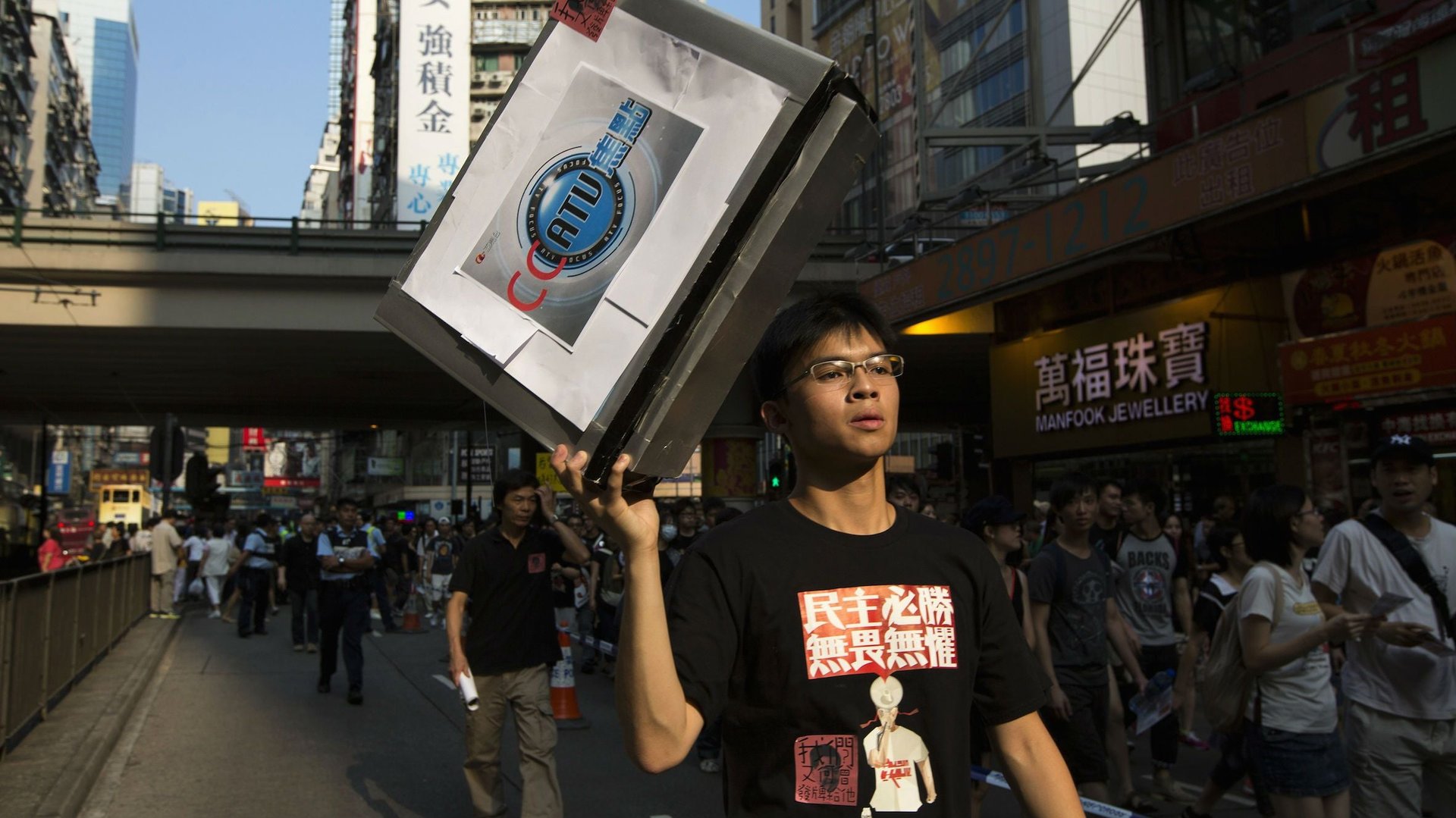The subversive message of Hong Kong’s version of “House of Cards”
Hong Kongers sitting down to watch The Election, a new political drama unveiled this week, may find the story familiar: Idealistic activists and politicians face an uphill battle for universal suffrage.


Hong Kongers sitting down to watch The Election, a new political drama unveiled this week, may find the story familiar: Idealistic activists and politicians face an uphill battle for universal suffrage.
“People smear the civil disobedience campaign, calling it an act to overthrow the government, but that’s because our government is controlled by a bunch of jerks,” says a voiceover in one scene, in a clear nod to the pro-democracy protests known as the Umbrella Movement that have overtaken the city for the past month and a half.
The plot, with its political intrigue, murder, and tangential love stories, may remind some of Netflix’s political drama House of Cards—and the director of the Hong Kong show, Wong Kwok-keung says he took inspiration from the American show. In The Election, an upstart politician running for Hong Kong’s office of chief executive dies in a mysterious car crash, prompting his wife, a labor activist played by the famous Malaysian actress Angelica Lee, to take his place.
But the show isn’t just an example of art imitating life. The very existence of the 15-part series, available only via streaming video, is itself a form of dissent. Hong Kong Television (HKTV), the network that made it, is challenging the duopoly of Hong Kong’s tycoon-controlled television industry.
Last year, Hong Kong authorities refused to give a television license to the startup operator, prompting thousands of demonstrators to rally in protest of what they saw as the erosion of free speech, the government’s kowtowing to business elites who are often cozy with mainland China—not to mention limited, formulaic television offerings.
To work around the lack of a television license, HKTV has started a subscription-based online channel, which doesn’t require a government license. Having poached some of the best directors, producers and actors from the city’s two networks, TVB and Asia Television, the channel will offer HKTV-produced shows, as well as Korean dramas, shopping programs, and anime. The shows can be streamed via mobile apps, set-top boxes, or computers.
The show’s premiere on Nov. 19 coincided with the 47th anniversary of TVB, Hong Kong’s largest free-to-air commercial broadcast station, which is known to have pro-Beijing slant. Wong says the show wasn’t planned to make a statement about the Umbrella Movement’s stand-off with the government and Beijing. ”We began brainstorming this drama in 2012,” Wong told the South China Morning Post. “We could not predict what would happen.”
Still, he said, “Occupy Central has changed Hong Kongers’ perspectives on politics … The public now cares more about politics, and we hope to raise public awareness of things going on behind the scene.”